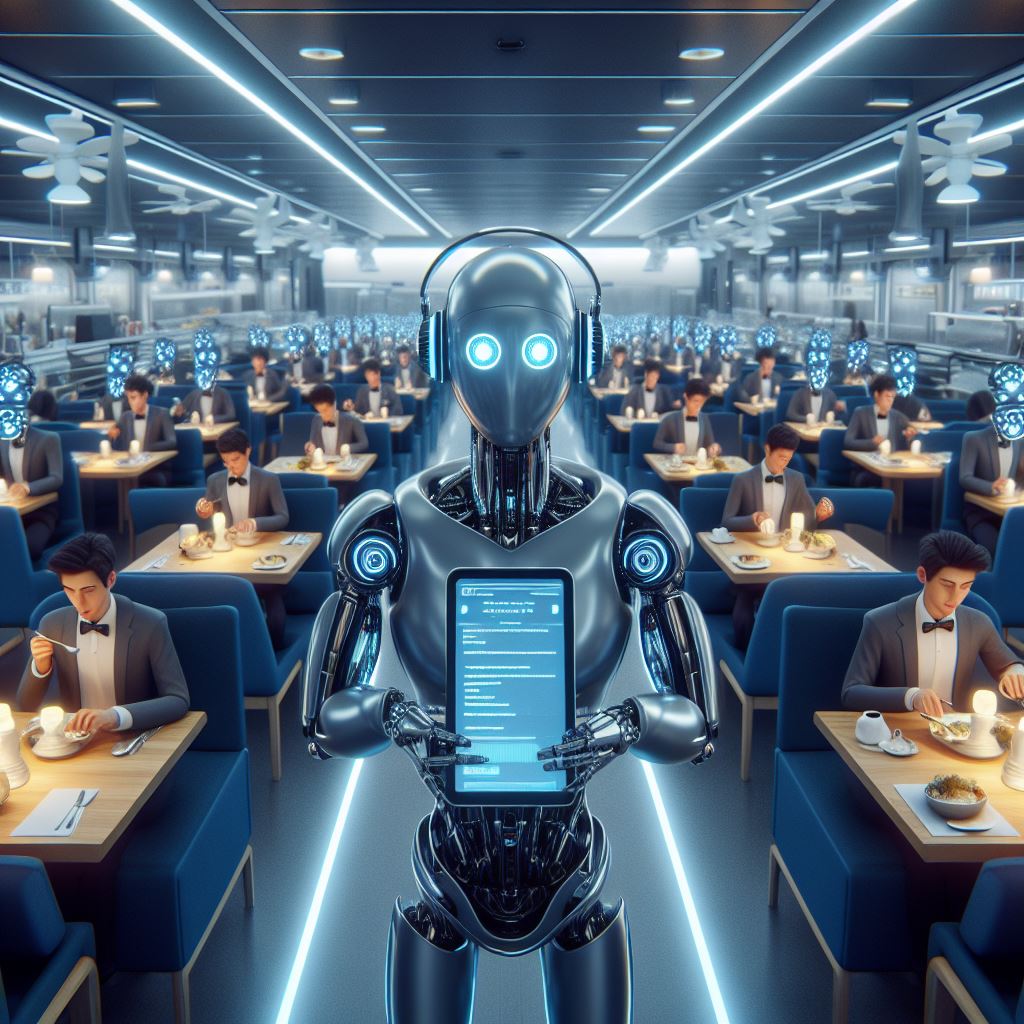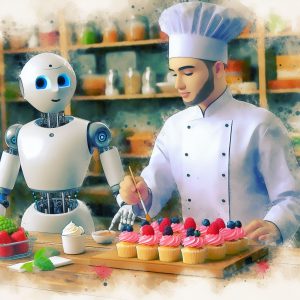The restaurant industry is undergoing a significant transformation, fueled by the rapid advancements in artificial intelligence (AI). This technological revolution is redefining the role of restaurant servers, presenting both opportunities and challenges for this essential part of the dining experience. In this blog, we’ll explore how AI is reshaping the restaurant landscape and the evolving role of restaurant servers.
AI’s Disruptive Influence:
AI has taken the restaurant industry by storm, introducing innovative applications that have enhanced operational efficiency, improved customer service, and optimized the overall dining experience. From AI-powered reservation systems to automated food preparation, AI is transforming the way restaurants operate.
1. AI-Driven Personalization:
One of the most notable impacts of AI in the restaurant industry is the ability to deliver personalized dining experiences. AI algorithms analyze customer data, preferences, and past interactions to make tailored recommendations for dishes, drinks, and even seating arrangements. This personalized approach enhances customer satisfaction and increases the likelihood of repeat visits.
2. Streamlined Operations:
AI technology has enabled seamless operational processes in restaurants. Automated inventory management systems track ingredient levels, preventing shortages and ensuring the availability of popular dishes. AI-powered kitchen optimization tools streamline cooking times, optimize staff schedules, and minimize food waste. These advancements liberate restaurant servers from time-consuming tasks, allowing them to focus on providing exceptional customer service.
3. Improved Customer Service:
AI chatbots and virtual assistants have emerged as invaluable tools for enhancing customer service in restaurants. These AI-driven assistants can handle routine tasks such as taking reservations, answering frequently asked questions, and providing recommendations. This frees up restaurant servers to engage in more meaningful interactions with customers, fostering personal connections and building lasting relationships.
4. Redefined Server Roles:
As AI automates routine tasks, the role of restaurant servers is evolving towards becoming more customer-centric and hospitality-oriented. Servers are now expected to possess a deeper understanding of the menu, ingredients, and the restaurant’s unique story. They act as culinary guides, helping customers navigate the menu and making recommendations based on preferences and dietary restrictions.
5. Enhanced Upselling and Cross-Selling:
AI can provide restaurant servers with valuable insights into customer preferences and spending patterns. By analyzing data on customer behaviors, AI can suggest upselling opportunities and make personalized recommendations for complementary dishes, beverages, or desserts. This data-driven approach can increase sales and improve profitability for restaurants.
6. Data-Driven Decision-Making:
AI has empowered restaurant servers with data-driven insights to make informed decisions. POS (point-of-sale) systems integrated with AI analytics provide real-time information on popular dishes, customer preferences, and sales trends. Armed with this knowledge, servers can adjust their service strategies, optimize menu offerings, and tailor their recommendations to better meet customer needs.
Conclusion:
The integration of AI in the restaurant industry has brought about a transformative shift in the role of restaurant servers. While AI automates routine tasks, it simultaneously elevates the importance of human interaction and personalized customer service. Restaurant servers are now empowered with AI-driven tools to deliver exceptional dining experiences, build lasting relationships with customers, and contribute to the overall success of their establishments. As AI continues to evolve, the role of restaurant servers will further evolve, requiring a harmonious blend of technological proficiency and genuine hospitality.



